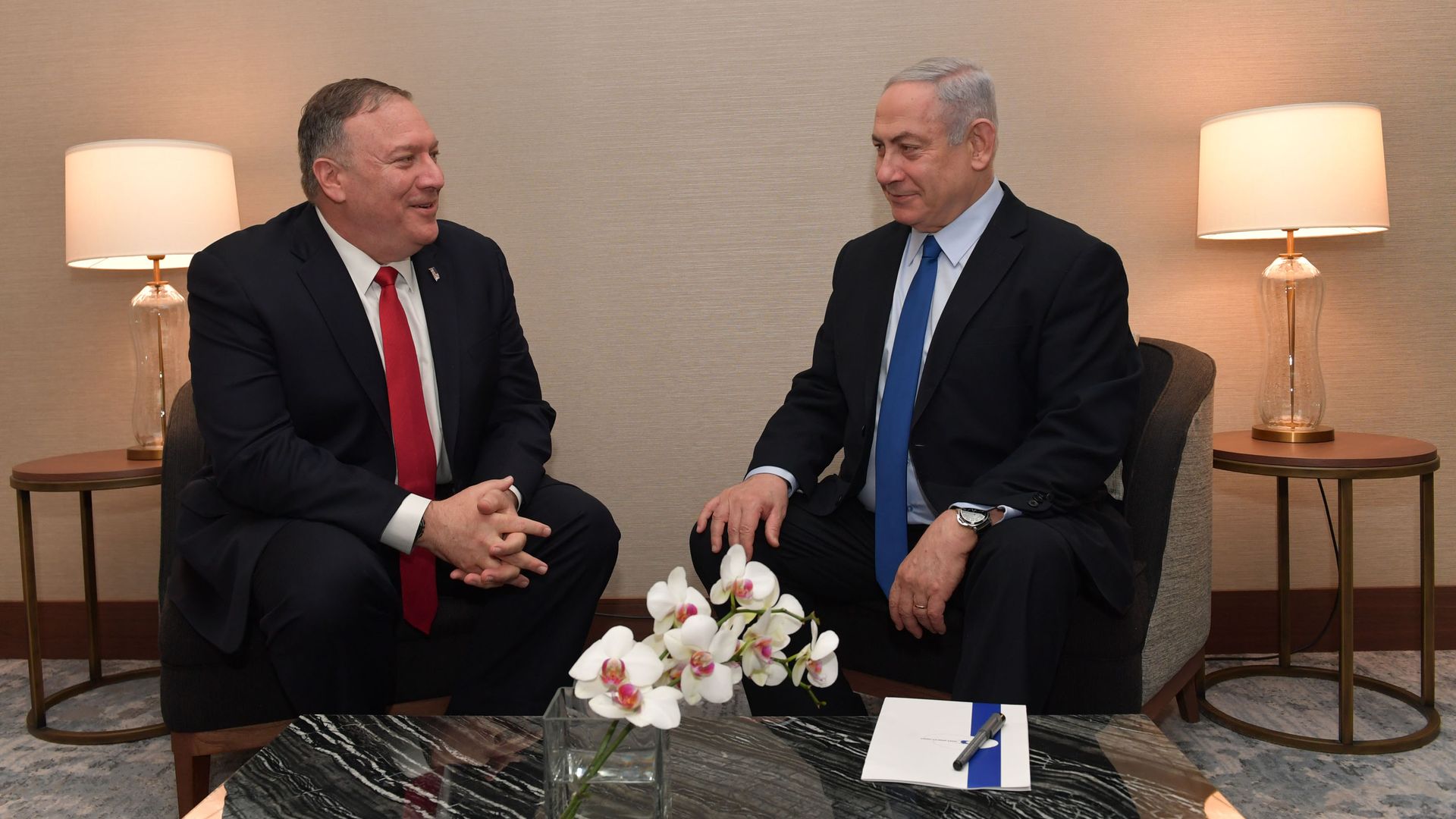U.S. to allow citizens born in Jerusalem to list birthplace as Israel
Add Axios as your preferred source to
see more of our stories on Google.

Pompeo (L) with Netanyahu. Photo via Getty
Secretary of State Mike Pompeo announced a change of U.S. policy today making U.S. citizens born in Jerusalem eligible to list their place of birth as Israel on passports and other official documents.
Why it matters: This is another symbolic step by the Trump administration that reinforces the current Israeli government’s position that Jerusalem is the capital of Israel only, regardless of Palestinian aspirations to have an independent state with East Jerusalem as its capital.
Pompeo said the decision is consistent with President Trump’s December 2017 announcement that the U.S. would recognize Jerusalem as the capital of Israel and move the U.S. Embassy there.
- Those announcements created the deepest crisis in 15 years between the U.S. and Palestinian leaders, who halted all contact with the Trump administration.
Flashback: The issue of determining the place of birth for U.S. citizens born in Jerusalem was the focus of a U.S. Supreme Court ruling in 2015.
- The judges ruled that the president and not Congress had the authority to decide how the U.S. sees the status of Jerusalem.
According to the new State Department policy:
- Applicants born in Jerusalem will be able to request either Jerusalem or Israel as their place of birth on consular documents.
- U.S. citizens born in Jerusalem who do not specify their place of birth on applications for consular services will continue to be issued documents that indicate their place of birth as Jerusalem.
- Other guidance on listing of place of birth in Israel, the Gaza Strip, the Golan Heights, Jerusalem and the West Bank remains unchanged.
What they're saying:
- Pompeo said in a statement that the U.S. recognizes Jerusalem as Israel's capital and seat of government but continues to take no position on the boundaries of Israeli sovereignty in Jerusalem.
- “This matter remains subject to final status negotiations between the two parties. The President’s Vision for Peace provides a realistic and achievable pathway for that peace to happen, and I encourage the Palestinians to come to the table and negotiate," Pompeo said.
- Palestinian leaders have stated that Trump's plan can never be the basis for negotiations.
Behind the scenes: The new policy shift comes after a year of consultations at the State Department. U.S. ambassador to Israel David Friedman was the key person pushing for the policy.
- Yesterday, Friedman managed to push through another change in U.S. policy when he signed revised scientific cooperation agreements with Israel that will allow U.S. taxpayers' money to be spent on R&D in Israeli institutions in West Bank settlements.
Go deeper: U.S. election result will shake up Israeli politics
